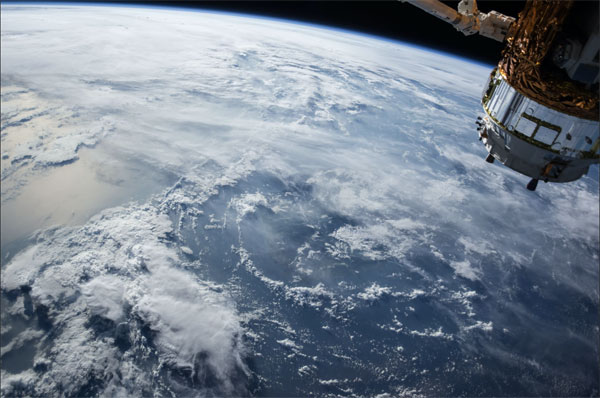
The Ministry of Science and ICT announced plans on the 29th to solidify space collaboration with the U.S., following discussions with key American space institutions like NASA, the National Space Council (NSpC), and the Jet Propulsion Laboratory (JPL).
South Korea accelerated its space cooperation with the United States, fueled by the establishment of its own National Space Agency.
Korea's prowess in mobility and communications technologies will expand into space, including lunar applications, through long-term collaboration.
Deputy Minister Jo Seong-kyung visited the mentioned agencies on the 23rd and 24th to discuss cooperative measures.
During a meeting with NASA's Deputy Administrator Pam Melroy on the 23rd, Jo deliberated on cooperation for the Artemis Moon exploration program, following up from last April's joint statement on space exploration and science.
Both parties agreed to identify and continue discussion on specific research collaborations and explore further cooperation between the Korean Space Agency and NASA post-establishment.
They plan to apply Korea's strengths, like mobility, secondary batteries, 5G, autonomous driving, and nuclear technologies, to space exploration endeavors such as lunar rovers and communication networks.
After his discussion with Shirak Parikh, Secretary-General of the NSpC, Jo outlined the anticipated role of the new Korean Space Agency and its relationship with other national institutes.
Parikh expressed strong support for the agency, recalling the formidable advantages witnessed at last year's Korea-U.S. Space Industry Forum, where the benefits of industrial cooperation were evident.
He also advised that governments should dismantle barriers to cooperation and support industrial growth.
At JPL, Jo was briefed on R&D activities like Mars rovers and deep space communications, exchanging views on the Space Agency's operation, compensation, and talent acquisition with over 20 Korean scientists.
Deputy Minister Jo emphasized, "Space is not a challenge for a single nation but requires strategic international cooperation based on trust for the sake of humanity," and added, "This visit to key U.S. space agencies reaffirmed South Korea's evolving status in the space arena."
Sacheon (Gyeongsangnam-do) currently accounts for half of South Korea's aerospace industry revenue, yet with the establishment of the new Space Agency, the city aspires to become 'the Toulouse of Korea'.
Toulouse, located in Southern France, is renowned as an aviation hub, home to Airbus and over 1,200 aerospace companies, making it a central city for the aerospace industry.
The government aims to foster over 2,000 innovative aerospace enterprises through the Space Agency and significantly increase investment in the aerospace sector, with the goal of capturing 10% (equivalent to 420 trillion won) of the global market share.
By 2045, this initiative is expected to catapult South Korea into the ranks of the top five space powers in the world.
There is widespread hope that the involvement of international experts will enhance technological cooperation.
Minister of Science and ICT, Lee Jong-ho, mentioned focusing on recruiting talents, including Korean-Americans and Koreans who have worked at NASA, as well as outstanding foreigners from Japan, Russia, and India.
The newly established Space Agency will initially operate with 200 researchers and 100 administrative staff.
These positions, filled by fixed-term civil servants, will allow flexibility in adjusting the ratio of research to administrative roles as needed.

Hanna Yein Cho
Grade 10
Yongsan International School of Seoul

